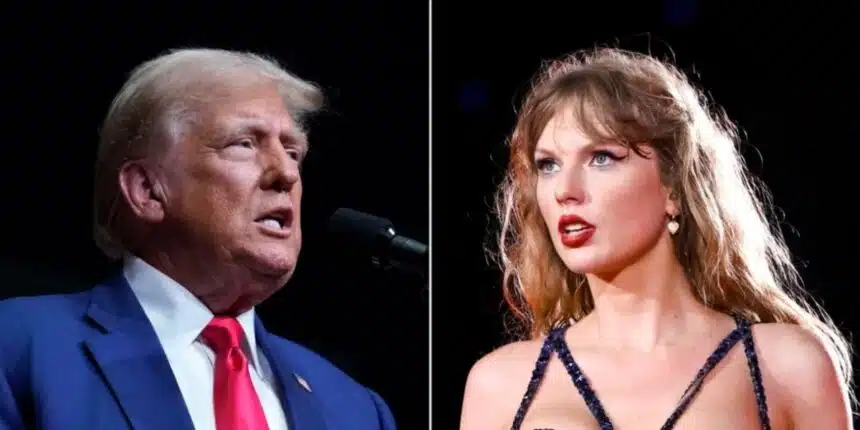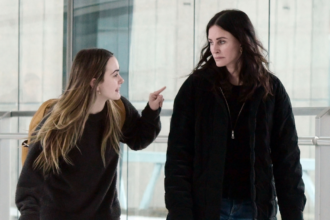Taylor Swift and AI drama recently became a hot topic. It’s especially true when it comes to political misinformation and nonconsensual deepfake pornography. This article takes you through the prior events leading up to the Taylor Swift controversy. Also, we go through the singer’s responses and the possible implications for laws and norms around AI.
Background of the Taylor Swift controversy
Former President Donald Trump posted an AI rendering in August 2024 that falsely claimed Taylor Swift endorsed him for president. It was an alteration of a past pro-Biden meme featuring Swift in one of those recruitment-style posters. The image had already passed around in Democrat circles before being altered. Then, Trump supporters reposted it on social media sites such as Truth Social and X (formerly Twitter). Which upset her fanbase, the Swifties, and lured them to stick together in the salvation of their Queen with a fierce response to the unjustified use of artificial intelligence to replicate Taylor’s likeness
This is not an isolated incident but rather one of the latest examples in an ongoing trend in which an increasing number of celebrities and public figures are targeted by AI-generated forgeries that misrepresent their views or likenesses. When AI-generated images showed Swift and her fans promoting Trump, they were particularly troubling in light of her support for Democratic candidates.
Swift’s Response
Within hours of those distorted images circulating the web, Taylor Swift took to social media to voice concerns about the dangerous nature of AI. In one post, she wrote that the “falsified” use of her image raised troubling associations with AI and disinformation. She underscored the importance of transparency and truth in fighting against such deception, imploring her followers to be mindful of the risks associated with creating content.
Just after this incident, Swift endorsed Kamala Harris, which the media depicted as a reaction to the weaponization of her image. That sentiment captured attention among those worried about the effects of AI-generated content on public discourse and individual privacy, as she warned that truth “is the best antidote” to misinformation.
Legislative Implications
Lawmakers are now revisiting other regulations on AI and deepfakes after Swift’s backlash. Marco Salazar and Joe Morelle have introduced the No AI FRAUD Act, establishing federal safeguards against the nonconsensual distribution of digitally manipulated images containing nudity. Fears of more widespread misuse of AI tools prompted the new law. It would impose civil sanctions on whoever creates nonconsensual damaging deepfakes.
This effort is as urgent as ever, as most deepfake content is nonconsensual pornography and that the vast majority of deepfake victims are women. The speedy public backlash to Swift’s ordeal has coalesced support for these bills among legislators. They hope cases like hers will fuel the engines of reform and affect the way society reckons with AI-created content.
Broader Societal Impact
The Taylor Swift AI controversy is all about digital rights, consent and the ethical use of technology. Generative AI tools are advancing rapidly. So, the potential of their misuse to create false or harmful content has raised concerns. Pics and vids go viral in minutes, with catastrophic results for reputations and mental states. Swift’s deepfakes, for example, gained certain momentum before they could take them down.
In addition, the incident sparked several discussions surrounding social media sites’ accountability in regulating content manipulating people’s likenesses. The incident has garnered interest from civil rights groups, who are pushing for better protections against online harassment.
Final Thoughts on Taylor Swift AI controversy
The controversy surrounding Taylor Swift and AI illustrates a pressing demand for new privacy laws and a communal obligation to prevent AI-generated misrepresentation. As understanding of the topic increases, lawmakers, tech companies, and society need to have a big discussion on how to deal with these issues without compromising individual rights and free speech.
The net if full of juicy controvercies. Here is what really happened concerning the Linus Tech Tips controversy. Don’t forget to connect with us on social media (Facebook and Twitter) to get the latest gossip.
Sources:
- brookings.edu/articles/childless-cat-lady-taylor-swifts-clapback-warns-against-ai-and-deepfakes/
- nbcnews.com/tech/tech-news/ai-taylor-swift-endorsement-trump-shared-was-originally-biden-meme-rcna170945











